Today, author Melissa Berg returns to talk about Magic! What is one of the most important ingredients for magic? Read on to find out what is essential in order to create a believable magic system for your world. To read more by Melissa Berg, go HERE.
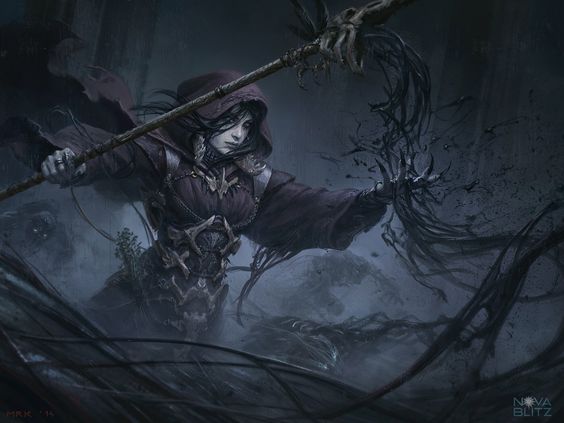
Magic and fantasy; it is a common opinion that you can’t have one without the other. But what if this is wrong?
Is magic really just a fantasy?
The first question we should ask is: What is magic?
Magic is a part of our lives, our cultures, our histories. We cling to magic for hope and call them miracles. Many face hard times and pray for something better, a chance to make it one more day, and to get over the many obstacles that life throws at us, whether they are external forces or those internal and of our own making. Magic is that mysterious unknown that explains the unexplainable. And we still need it, clutching it to our chests like a blue blankie, even as science shrinks it down to barely discernable, and turns believers into skeptics.
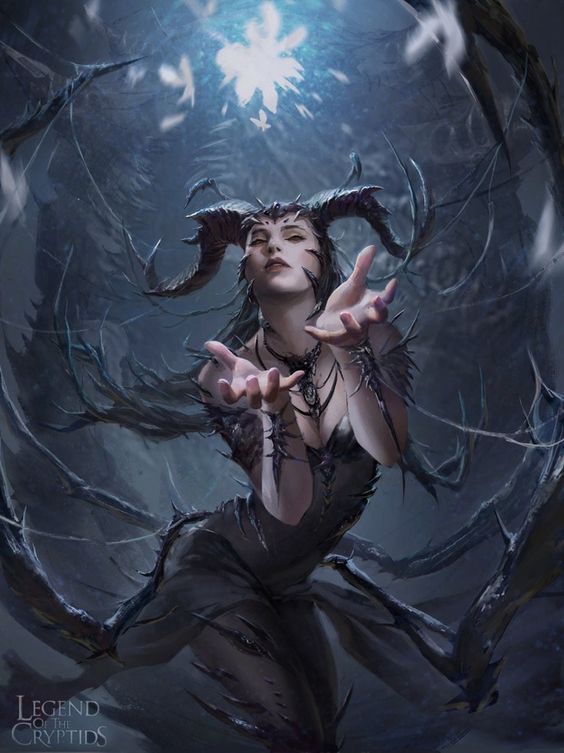
It doesn’t have to be this way. Magic is still here, it is just the definition that must change, and with it, our perceptions. For us, Magic is a different power, no longer the demons haunting our dreams at night, or making our children sick. Magic is not dark or light, it is simply a force. Magic is not the stuff of fairy tales or superstition. It is just science that we don’t yet understand.
Our own past is riddled with ‘magic’. Religion is based on a spiritual magic, and the pursuit of light destroying the darker forces. Witches, druids, fairy mischief, magic potions that cured, and even the power of words over those with illnesses of the mind as in exorcism, were part of the common belief, and these practices were performed by both priests and doctors alike. In some places, they still are. Now, most forward thinking countries know better; magic has given way to science, and most of these mysterious forces have been explained. So how do we make our readers believe in magic again? Audiences of today are a lot more skeptic than they were a hundred years ago; back when Mary Shelley wrote Frankenstein, and Bram Stoker wrote Dracula. Which, incidentally, was a time when a modern age of science and reason was colliding with the old ways of superstition, myth, and even religion. And though Frankenstein was based on that new science, it played to the dark fears and the mysterious unknowns that most still believed in. It’s not always easy to trade the old for the new. Now, instead, we battle computers and technology that seek to turn on us and destroy us, because in whatever decade the story is written, there is still always something out there that is unknown. A future that we cannot predict, and here is where magic can still take place.
Why is magic so important? Because it’s Human Nature… that’s why.
In my series, The Shifting Balance, my characters are in a world similar to our own middle ages; most comparably, you could say it is just before the turning point that created the Renaissance. Magic is something too mysterious, too unknown and strange, for the common man to understand, yet the wielders of this power do understand it, up to a point, and this gives them an upper-hand. If you think this sounds a little like the period of our own history, when the Catholic Church had power over kings, than you would be correct. But it is more about the self-made bubble that those in power tend to create around themselves. Because the people did not understand it, that power became something they feared, and we all know what those, who fear the unknown and automatically judge as evil, usually resort to.
It boils down to human nature. Magic is what the believer makes it to be, it is the perceptions of the people that must either turn the unknown into something dark and evil and mysterious, or simply decide that it is something they should study and try to understand; a science which they still have not unfolded enough to find its true nature. In my world, both of these opinions exist, and each belief tends to have its own set of conflicts. Oftentimes, those who wield great power tend to overlook their own actions as a cause for concern. As a main character of mine states:
“More concerned with her duties as High Sceleste, Keeper of the Balance, and Steward of a seemingly righteous and forthright Light, she was becoming blinded to the truth—that small ripples in a pond, if constant and allowed to continue for a long enough time, can and will ultimately erode that same Balance that she worked so hard to protect.” ~ Johnquil Mason, from Thy Will Be Done, Book 2 of The Shifting Balance
In turn, it was these actions that caused the people, who understood that power even less, to be easily seduced by the main antagonist, Emperor Kahrus.
“Things that had been done in our past had been ignored—and still were being ignored. Things that shouldn’t have happened, but were allowed in the hopes that Life and Balance would benefit, were never rectified. The people were growing restless—I could see it, lowly as I was,” John smirked. “They no longer wanted leaders who, at the time, seemed so far removed from their everyday lives, that they could barely understand their wants or needs anymore. Life was continuing on, and it was decent, maybe even happy, for most, but it was slowly becoming ‘not enough’.” ~ Johnquil Mason, from Thy Will Be Done, Book 2 of The Shifting Balance
Because of this power gap, Emperor Kahrus was able to drive a wedge between the people and their beloved leaders, and it was this fear of the unknown that led the people to easily believe the lies he spread about them. Because of this, in an indirect way, both blind belief in magic, and the misunderstanding and fear of magic caused a tragic conflict that most likely, could have been avoided. Hence… Human nature.
How do we make magic real? Turn it into science.
 There is a substantial power in my world, and though the characters may not fully understand how it works, I do. I created this magic system so that it would make sense and could be believed by audiences of today. I love science, I love astronomy, and so I used these two subjects to create the basis of what my world would call magic. Actually, most of the time, I don’t even call it magic in my story, I call it a power, or a gift, because that is essentially, what it is. (Love is also an essential force in my series, yet alas, I must constantly avoid writing the phrase [that’s] ‘the power of love…’—dang 80s songs… dang Huey Lewis.)
There is a substantial power in my world, and though the characters may not fully understand how it works, I do. I created this magic system so that it would make sense and could be believed by audiences of today. I love science, I love astronomy, and so I used these two subjects to create the basis of what my world would call magic. Actually, most of the time, I don’t even call it magic in my story, I call it a power, or a gift, because that is essentially, what it is. (Love is also an essential force in my series, yet alas, I must constantly avoid writing the phrase [that’s] ‘the power of love…’—dang 80s songs… dang Huey Lewis.)
It is the main elements of life as an energy force that makes up this power—water, air, earth, and fire—because, we the audience understand them down to a molecular level, and we can predict how they will behave. Yet, I add that magic and fantastical quality of the unknown, the abstract and thought provoking question of ‘what if?’ And here is where the real fun comes in… What if certain people could see these elements down to their most basic parts, which in our terms would be the molecular level? And, what if they could manipulate and use them as a ‘power’ that they could control? As I set this ‘what if’ question up, I was easily and quickly able to answer it. Because of the most basic makeup of these elements, and how and why the user is able to control them, I was able to have limitations and rules, while opening a whole realm of possibilities as well. With each ability the user has, there is always something that cannot be done, and in some cases should not be done because of their sacred belief in the Balance of all things.
This concept automatically gets rid of the problem that a character like Superman seems to have: Endless powers that show up at the most convenient of places, and only prove that the science behind this particular superhero had not been completely thought out and written as canon. If there had been, then those older comics were definitely stretching it a bit. I tend to like balance and rules and even good explanations—I am a Libra after all—so when I’m asked or expected to suspend my belief toward some of these extremes, I start to see the problems, the excuses, and even the laziness of the writing… and this is truly disappointing, especially if you were drawn to the idea and were really hoping to love it.
Too much of a good thing?
The old saying, ‘Everything in moderation’ doesn’t pertain to only chocolate or wine, Balance is important in all things, literally. From an atom to a blade of grass, to whole galaxies and the universe itself, there must always be a precious balance. This is why I built an entire series on the concept of balance—Libra… remember? And this fact holds true to your writing as well. We talked about that important balance when writing fighting scenes and battles last month, so too, is it important when developing the magic system of your world. The imperfections of that balance is great for the conflict of the story itself, but as the storyteller you don’t want to explain away every detail and aspect of your magic. Yes, you can have it all in your notes, but you must keep some of it to yourself. You are the creator of your world, so too do you hold the keys to those mysteries. The reader and the audience should not know as much as you, and they don’t need to have every nuance explained to them.
It is human nature to want to explore and seek out the answers. We want a bit of the mysterious and unknown, and we love the chance to fill in the blanks ourselves and pose new questions that can be debated endlessly. Proof of this was in Star Wars: The Phantom Menace. When George Lucas decided to explain the force, even in the midst of a Science Fiction story, we balked at the idea of Midichlorians. How dare he!?—Well, ‘how dare he?’ a lot of things in that movie… but I’m over it… sort of…
And then it happened again in The Matrix Reloaded. The Wachowski Brothers made more than a few mistakes with their follow up to one of my favorite movies of all time, The Matrix. Instead of keeping a bit of a mystic or magic quality to what the matrix actually was, they tried to explain every odd or paranormal happening of the real world. It was fine in the first movie, the moment of déjà vu works because it pushes the plot forward. But in the second movie, they try to explain every other unexplainable event and make human nature’s propensity for imaginative invention of the fantastical into nothing but a program working through its glitches. Yes, the whole matrix is a ‘dream’, but there needs to be some room left for the minds of those still plugged in to add their own demons and saviors to the program, because this is a necessity of human nature:
Neo: “Are there other programs like you?”
The Oracle: “Oh, well, not like me. But… look, see those birds? At some point a program was written to govern them. A program was written to watch over the trees, and the wind, the sunrise, and sunset. There are programs running all over the place. The ones doing their job, doing what they were meant to do, are invisible. You’d never even know they were here. But the other ones, well, we hear about them all the time.”
It would have been fine to end the explanation there, but they didn’t:
Neo: “I’ve never heard of them.”
The Oracle: “Oh, of course you have. Every time you’ve heard someone say they saw a ghost, or an angel. Every story you’ve ever heard about vampires, werewolves, or aliens, is the system assimilating some program that’s doing something they’re not supposed to be doing.” ~ from The Matrix Reloaded
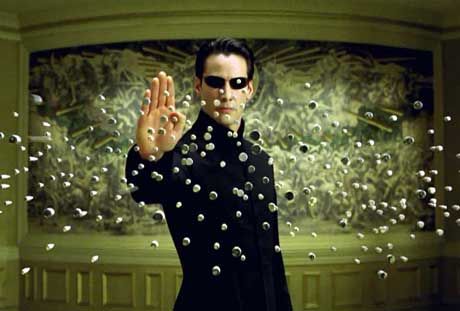
In both these cases, by adding to what we already think we know, and removing the mystery, it cheapens the beautiful and poetic verse that turned Yoda from simply a Muppet to a mystic.
“Size matters not. Look at me. Judge me by my size, do you? Hmm? Hmm. And well you should not. For my ally is the Force, and a powerful ally it is. Life creates it, makes it grow. Its energy surrounds us and binds us. Luminous beings are we, not this crude matter. You must feel the Force around you; here, between you, me, the tree, the rock, everywhere, yes. Even between the land and the ship.” ~ Yoda, from Star Wars: The Empire Strikes Back
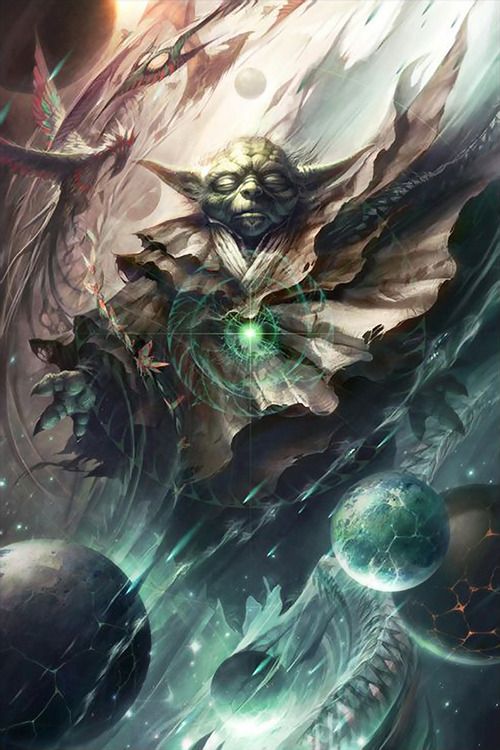
Did we ever need more of an explanation than that?
In the Lord of the Rings Series, both Tolkien and later Peter Jackson, got it right. Neither tried to explain the ‘how’ of the ring, and why it is evil, or even the incredibly dark force that is Sauron. We don’t need to know how Legolas can see over great distances when he needs, or why Gandalf’s staff is used to focus the energy of his wizard’s power. We can fill in the gaps ourselves and have a myriad of discussions and debates into the how and why of all the magical variations within Middle Earth.
In my series I take one chapter to explain to Mahren (the main character) how to ‘think’ about her power. It is her first day of training and her grandmother explains her power in simple terms:
“Each element has two parts. The best way to illustrate this would be to use a circle. There is an inner layer and an outside layer. The outside layer—or the visible line of the circle—is the control or manipulation of what you can see and feel around you. For instance, Ahrae, which is the element of air, gives us the ability to control the obvious, like wind, but it can also do other things, like move clouds. It is in this way that weather can be manipulated. Those of us who can control Ahrae, can also manipulate the fundamental makeup of air. It can be superheated to burn something or just to warm. It can be super cooled to freeze, or to just cool it a little. How much or how little is all in the amount of control the user has. Ahrae is also the most versatile, as it can be manipulated to create a powerful force that can block an attack or even crush an object. How much force is created, depends again, on the strength of the user. Air also has qualities within its fundamental makeup, like water, and even electricity. This can be gathered into large quantities and used to create lightning; something, I believe, you have already done. Ahrae can also be used to manipulate the air around something to move objects or even ourselves. For instance, giving one the ability to move very fast or provide pressure on a foe to slow him down. Teressah will get into some of the new insight on movement that she has discovered in her training.
“The second part of Ahrae, is the inner layer—or the inside of the circle. This is the manipulation or control of what you cannot see. Usually this involves people and their psychic qualities. Ahrae gives one the ability to be empathetic toward others, to interpret their feelings and emotions, or even read their thoughts. This was widely used to find out if a prisoner was lying. Unfortunately, those of us born of Sceleste, men and women alike, are immune to this. You can feel our emotions, and sometimes know if we are hiding something, though not always enough to judge whether we are lying.” ~ Sarah Evenleah, from Prophecy of the Stars, Book 1 of The Shifting Balance
From this point I explain the basic aspects of the other elements, for instance Terrah, the element of earth, can ‘see’ time; Ahquae or water, has the gift of healing. Most Sceleste have the ability to control only one or two of these elements. This helps to create some of these important limits. The Sceleste must work together to combine their gifts in order to accomplish different things. This also aids in the building of the philosophy around their power. By using these ideas I was able to create an entire belief system or religion based on both the Balance, which they are sworn to protect, and the power of life they wield, given to them thousands of years ago. Much the way the Force and the Jedi evolved over the course of the Star Wars series. But I don’t explain every ability that each element might give the user. I leave that up to both the reader and even the main character to figure out on her own along the way.
It may be your world, but your audience needs to have a role in creating it, too…
The reader and the audience needs to have the chance to participate in the world you are creating. By creating a magic system that we can all feel and understand, with its own set of rules and limits, while being believable in our decade of science and technology, we give them something that is tangible. But then we hold back on some of those details. This is the mystery, the blank canvas your reader gets to fill in on their own. Your world is shaped by the characters within the pages, AND by those who are reading it.
In the end, it is Human Nature that is the real power and magic of any story.
***
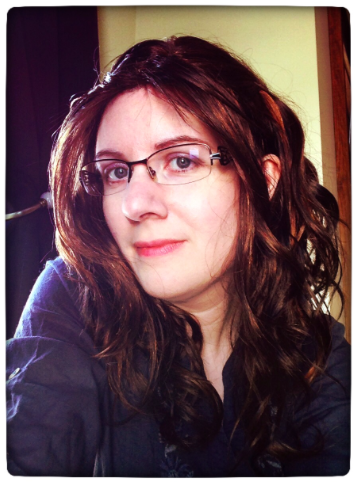 Melissa Berg is the author of the Shifting Balance Series, which has been her passion for the past ten years. She also works as an illustrator and studied art and design at Madison Area Technical College in Madison, Wisconsin. When she isn’t writing or painting or entertaining her son, she is pursuing the art of 3D computer illustration/animation, as a side project and to feed her fascination in the ever-expanding medium used for storytelling. She currently lives in Minnesota with her husband, young son, and a crazy Border Collie.
Melissa Berg is the author of the Shifting Balance Series, which has been her passion for the past ten years. She also works as an illustrator and studied art and design at Madison Area Technical College in Madison, Wisconsin. When she isn’t writing or painting or entertaining her son, she is pursuing the art of 3D computer illustration/animation, as a side project and to feed her fascination in the ever-expanding medium used for storytelling. She currently lives in Minnesota with her husband, young son, and a crazy Border Collie.
Check out my website or join my mailing list for further updates: http://theshiftingbalance.com
‘Like’ my pages on FaceBook: https://www.facebook.com/theshiftingbalance/
https://www.facebook.com/Melissa-Berg-Illustration-334413330053966/
Follow me on Twitter: @WhimzicalMusing




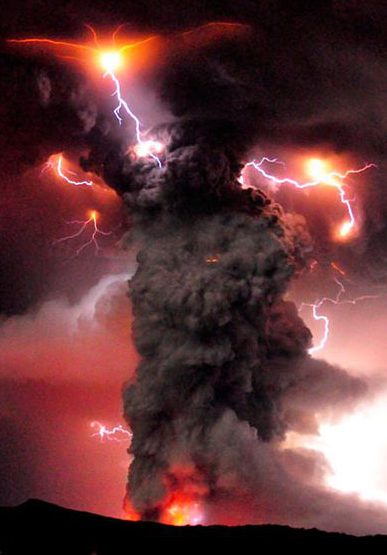

I really like the way you described magic. I agree that it’s just a force, not dark or light by itself. In every story or myth I’ve read or written myself especially, magic doesn’t change to good or evil until it is employed by someone’s consciousness. The intentions of the heart are what guide it.